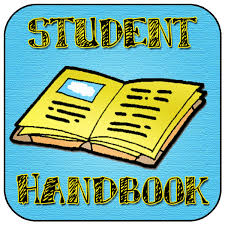
-
Nathan Burns
Principal
www.nashua.edu/north
PRINCIPAL'S MESSAGE
Dear Class of 2028,
Let me be the first person to welcome you to Nashua High School North. I hope you had a restful summer vacation and are prepared to make academics a priority in high school. It is important to always give your best effort in and out of the classroom. Over the next four years, you will have many opportunities to challenge yourself in ways that you have never done before.
I encourage you to set lofty goals and take risks in your education. At Nashua North, you will find that your teachers are knowledgeable and caring individuals that are willing to support you on your journey through high school. Be prepared to ask questions and learn from them on a daily basis.
I hope you will get involved in the Titan community. I urge you to take advantage of the numerous opportunities that Nashua North has to offer. Consider joining the chorus or participating in band, trying a new club or activity, or participating in one of our many athletic teams. Make a concerted effort to attend events and be part of the strong Titan community in our school. You will not regret participating and will make friendships that will last a lifetime.
I look forward to meeting you, and please know that my door is always open.
Principal Burns
NASHUA HIGH SCHOOL NORTH
MISSION STATEMENT
The mission of Nashua High School North is to create a safe, respectful community which embraces our diversity and provides a foundation for life-long learning while promoting intellectual growth and personal responsibility.
NASHUA HIGH SCHOOL NORTH BELL SCHEDULE 2024-2025
REGULAR
DELAYED OPENING
Period
Start
End
Block
Start
End
1
7:20
8:39
1
9:20
10:10
2
8:44
10:04
2
10:15
11:05
E- Block
10:09
10:44
3
10:49
12:39
3
11:10
1:05
4
12:44
2:03
4
1:10
2:03
LUNCHES
Regular Day
Delayed Opening
Lunch A
10:49 – 11:12
11:10-11:35
Lunch B
11:17 – 11:41
11:40-12:05
Lunch C
11:46 – 12:10
12:10-12:35
Lunch D
12:15 – 12:39
12:40-1:05
Students may look for school cancelations on Twitter @nashuaschools, the district website: www.nashua.edu, and on local television and radio stations.
OPEN HOUSE/PARENT TEACHER CONFERENCES
Open House Parent/Teacher Conferences
Semester 1 Thursday, September 12, 2024 Wednesday, October 9, 2024
Semester 2 Tuesday, February 13, 2025 Wednesday, March 12, 2025
Also available to parents is our web-based school information system. The system manages all facets of student data from attendance to grades and schedules. We have implemented the Family Portal so parents, teachers, and administrators can work together and communicate more effectively and efficiently. More information on how to obtain a user name and password will be forthcoming.
What information can I access through Aspen?
You, as a parent/guardian, can use one login to securely access the information for all of your children from just about anywhere. With Aspen, you can access:
· Student Demographic information
· Family contact and emergency information.
· Daily Attendance
· Academic information (transcripts, grades)
· Student schedules
· Check if your student has any fees owed.
· GPA and graduation requirement
· Sign up for email notifications
· Class Pages: See information on your child’s classes that the teacher may have posted.

